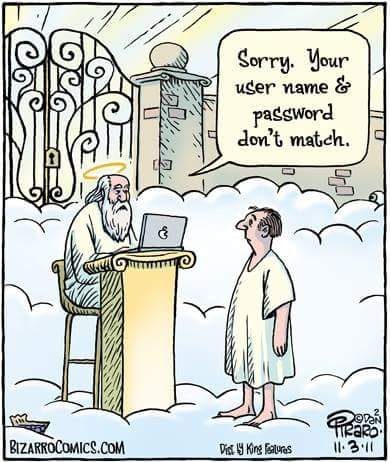But, Why?
“Why?” is a question we ask all our lives. Toddlers love to ask this question as they try to understand the world around them. But even in old age we ask, “Why are things the way they are? Why can’t I . . . ? Why would God allow . . . ?”
“Why?” is one of the most profound and practical questions a person can consider. Are we and our world under any control? Is God sovereign? The Bible answers, “Yes.”
So what does it mean that the Bible teaches that God is sovereign? It means that God alone determines all that will happen and rules how everything will happen. This means that he never is surprised, never is frustrated, never wonders, never looks back with regret, never is waiting, and never feels helpless.
God is never forced to do something. There is no authority over him that he has to answer to. He does what he pleases, decides whatever he wants, and acts as he desires. To say God is sovereign is simply to say that he is God and there is no one like him.
There are two aspects of God’s sovereignty: his decrees and his providence.
God’s decrees. A decree is a decision made by an authority. According to his own will and for his own glory, God has decided everything that will come to pass. Because he is infinite in power and wisdom, his decrees are eternal and unchangeable. What God has decreed to happen will happen.
God’s providence. Yet God doesn’t just give a decree and then sit passively above his world. He is an active participant in his world. He governs, sustains, effects, and controls. God is in constant contact with the universe, governing everything—from the biggest things all the way down to the smallest things.
God is sovereign. He decrees what will be and rules what he has made. How encouraging to know that our world is not out of control! No matter how chaotic and confusing it may seem, everything in your life is under the wise and careful control of the Lord Almighty.
Out of Control
Much of our regular anxiety, fear, and discouragement comes from thinking things are out of control. But what we’re really struggling with is this: Things are out of our control.
Imagine I have placed a sheet of paper in front of you with a small circle inside of a much larger circle. We’ll call the inner circle the circle of responsibility and the outer circle the circle of concern. Living as God has called you to live requires knowing which things in your life fit into which circle.
The circle of responsibility represents things that God has called you to do. These are your daily, God-ordained duties. The only proper response to this inner circle is to carefully and faithfully obey while trusting God for his empowering grace.
Many other things in life grab your attention, capture your mind, and weigh heavily on your heart—but they’re not your responsibility. These things don’t fit in the inner circle. Instead, they fit in the outer circle, the circle of concern. The only proper way to respond to these concerns is to entrust them to your Lord, who governs them all for his glory and your ultimate good.
What happens if you load things into the inner circle that actually belong to God? You will be domineering and controlling, and your life will be marked by anxiety and fear.
God hasn’t just given us a set of responsibilities (the inner circle). He has also pulled back the curtain of the heavens to reveal to us his sovereign throne (the outer circle). He has done this for two reasons. First, he wants us to be good stewards of the few things he has placed under our control. Second, he wants us to rest in knowing that the things that are out of our control are under his sovereign control.
The questions for you are “Do you have a clear understanding in your life of the things that God has called you to do (the inner circle)?” and “Do you understand which things he welcomes you to entrust to him (the outer circle)?”
We All Want to Be Sovereign
Why do drivers get angry at the cars in front of them? Why are vacations sometimes disappointing and not as fun as we had hoped? Why do we hate waiting in line at the grocery store? And why are we not always patient with family members or friends?
Deep in our hearts, we desire the world to follow our sovereign plans! We want the people around us to do our bidding! So we get easily frustrated because we lack the power to make things work the way we wish they would work.
The fact is, we have no idea what tomorrow will bring because we don’t plan or control tomorrow; God alone does.
It’s been this way for a long time. In Genesis 3, Adam and Eve wanted a life that did not require them to obey their Creator. The horrible lie of the serpent was that human sovereignty was possible. We want to rule over things that we have no ability to rule. As God’s sovereign will is happening around us, we get mad. Why? Because we would rather have our will be done.
Where does the desire to be sovereign rear its ugly head in your life? Every one of us would benefit from making this a daily item for personal prayer, saying,
Father, I confess that I often desire to have the rule over people and things that are under your control. May you give me the grace today to resist those desires and to entrust my life to you. I confess my sin against you and others, and I rest in your forgiveness.
Then leave your time of prayer thankful that you are free of the burden of sovereignty.
Humble Hearts and Huge Harvests
It is humbling to stop and realize the limits of our sovereignty. Be honest: there are very few things we can control. I have a hard time controlling my car keys, my cell phone, and my earbuds.
This means that the doctrine of the sovereignty of God should humble us. Consider what James says about this:
Come now, you who say, “Today or tomorrow we will go into such and such a town and spend a year there and trade and make a profit”—yet you do not know what tomorrow will bring. What is your life? For you are a mist that appears for a little time and then vanishes. Instead you ought to say, “If the Lord wills, we will live and do this or that.” (James 4:13–15)
It is tempting to act as if we are in more control than we actually are.
It is tempting to take credit for things we could have never produced on our own.
It is tempting to think that we can make life work according to our plan.
It is tempting to be proud of ourselves in places where we should instead be praising God.
The fact is, we have no idea what tomorrow will bring because we don’t plan or control tomorrow; God alone does.
Here is the point: The sovereignty of God is deeply humbling. And this is good because:
A humble heart is a worshiping heart.
A humble heart is a grateful heart.
A humble heart is an obedient heart.
A humble heart is a loving, serving heart.
The sovereignty of God, carried in your heart, will produce a harvest of good fruit in your life.
This article is adapted from 12 Truths Every Teen Can Trust: Core Beliefs of the Christian Faith That Will Change Your Life by Paul David Tripp.

Paul David Tripp (DMin, Westminster Theological Seminary) is a pastor, an award-winning author, and an international conference speaker. He has written numerous books, including Lead; Parenting; and the bestselling devotional New Morning Mercies. His not-for-profit ministry exists to connect the transforming power of Jesus Christ to everyday life. Tripp lives in Philadelphia with his wife, Luella, and they have four grown children.
Related Articles
Crossway is a not-for-profit Christian ministry that exists solely for the purpose of proclaiming the gospel through publishing gospel-centered, Bible-centered content. Learn more or donate today at crossway.org/about.











 English (US) ·
English (US) ·